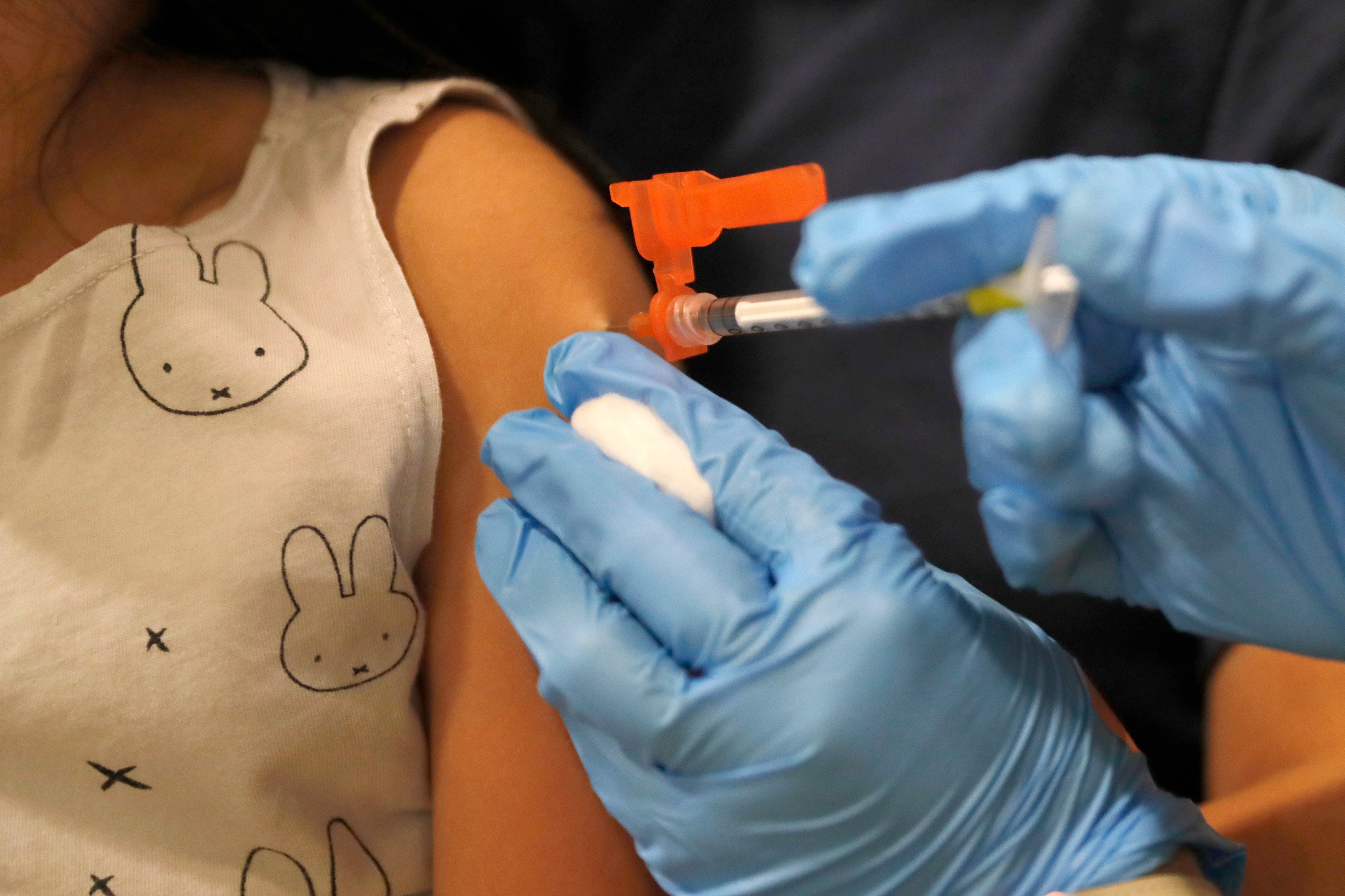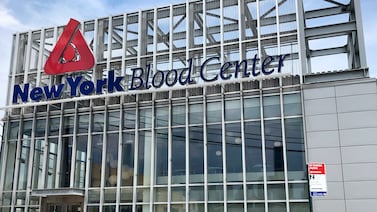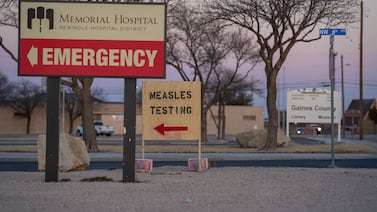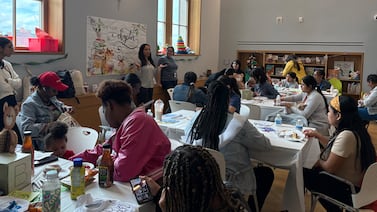Public health, explained: Sign up to receive Healthbeat’s free New York City newsletter here.
Vaccine coverage for young children has risen across New York City in recent years, although stark gaps persist in some pockets of the city, a new dashboard from the New York City Department of Health and Mental Hygiene reveals.
The combined seven-vaccine series is a group of routine childhood immunizations, including those against chickenpox, measles, mumps, rubella, poliovirus and other threats. Those vaccines, which follow the childhood immunization schedule, are among those required for New York City children to attend childcare and school.
As of Dec. 31, 65% of 2-year-olds across New York City had received all recommended doses of the seven-vaccine series, an increase from 59% coverage in 2019. But the data show wide variation between boroughs. Last year, only 53% of children in Staten Island and 55% in Brooklyn had completed the combined seven-vaccine series by their second birthday. In the Bronx, the coverage rate was 72%, and in Manhattan and Queens, it was 73%.
Citywide coverage rates for 2-year-olds were far higher for many individual vaccines, including 96% coverage for the polio vaccine, 95% coverage for the MMR vaccine, and 94% coverage for the varicella vaccine.
The release of the city’s vaccine dashboard comes as U.S. vaccine policy enters uncertain territory. Earlier this month, Health Secretary Robert F. Kennedy, Jr. fired all members of the Advisory Committee on Immunization Practices, a committee from the Centers for Disease Control and Prevention, which develops vaccine recommendations. This week, new members of the committee, selected by Kennedy, raised doubts about the safety and efficacy of long-established vaccines.
The committee plans to review the childhood vaccine schedule, a move which the American Academy of Pediatrics described as an attempt to “sow distrust in immunizations.” The professional association emphasized that it would continue to publish its own evidence-based recommendations and schedules.
Dr. Jennifer Duchon, a pediatric hospital epidemiologist and director of antimicrobial stewardship at the Mount Sinai Kravis Children’s Hospital, emphasized that childhood vaccinations offer critical protection against viruses that can severely harm infants and young children.
“We don’t see kids get renal failure or pneumonia from measles anymore. We don’t see patients be on ventilators with pertussis,” she said. “The reason that you don’t see these things is because of the success of vaccines.”
On Staten Island, the 81% coverage rate for the MMR vaccine for 2-year-olds was lower than the 95% citywide rate, but still higher than the borough’s 53% coverage rate for the combined seven-vaccine series.
Dr. Sheena Sangan, a Staten Island pediatrician affiliated with Cohen Children’s Northwell Health, said that in her practice, she often encounters families who seek more information about vaccines — and she’s happy to talk through any concerns.
“It’s okay to ask questions, and it really is a community health initiative,” she said. “Protecting one person means you’re protecting other people. And it’s not just the kids, it’s everybody in the community.”
Sangan added that she hopes to see the Health Department invest in local health literacy programs and public awareness campaigns around the immunization schedule, particularly for parents in the prenatal period. That work, she said, could help provide a “missing piece” in her community.
“I see patients, after the baby’s already born, and there’s already so much information out there, and they don’t really know what to focus on,” she said. “It’s not so much not wanting to vaccinate; they need more information.”
The city’s dashboard draws data from the Citywide Immunization Registry, which stores immunization records for New York City residents, as well as non-residents vaccinated in the city. That vaccine data will be updated twice a year, with coverage assessed in June and December and released a few months later.
Duchon, the Mount Sinai physician, said that if federal vaccine policy shifts, the role of local agencies like the Health Department in providing trusted expertise will become even more important.
“It’s going to fall to the cities and to the states — if there’s a deficit of national guidance or a splintering of opinions on a national basis — to take over the health of their citizens,” she said.
Eliza Fawcett is a reporter covering public health in New York City for Healthbeat. Contact Eliza at efawcett@healthbeat.org.







